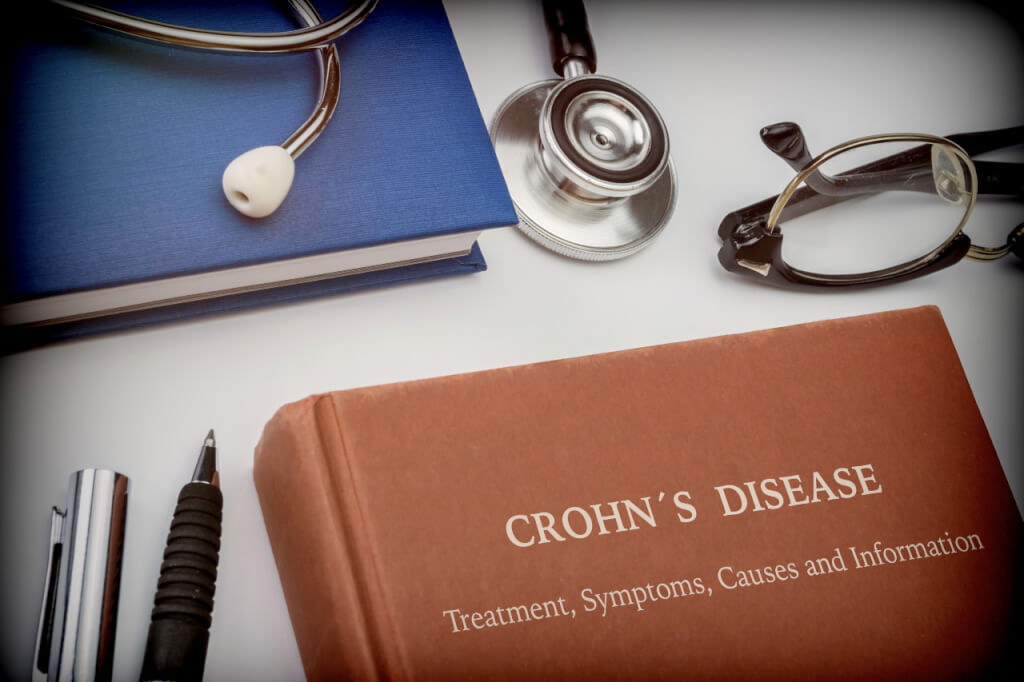Advertising Disclosure
Crohn’s disease: what you need to know

WHAT IS CROHN’S DISEASE
Crohn’s disease is an inflammatory disease of the gastrointestintal tract. It falls in the same group of conditions known as inflammatory bowel diseases (IBD). Crohn’s can affect any part of the GI tract, but it most commonly affects the areas toward the end of the small intestine (ileum) and the beginning of the colon. There are different classifications for Crohn’s depending on which area it affects. It’s a chronic condition that generally starts gradually and can get worse over time.
WHAT ARE THE DIFFERENT TYPES OF CROHN’S DISEASE?
As indicated above, there are different classifications of Crohn’s depending on which area of the gastrointestinal tract it affects:
— Crohn’s ileocolitis disease. Inflammation occurs in small intestine and part of the large intestine or colon. This is the most common form of Crohns.
— Crohn’s ileitis. Swelling and inflammation in the small intestine (ileum).
— Gastroduodenal Crohn’s. Inflammation and irritation that affects the stomach and top of small intestine (the duodenum).
— Crohn’s jejunoileitis. Patchy areas of inflammation occur in the upper half of the small intestine (the jejunum). (3)
WHAT ARE THE SYMPTOMS OF CROHN’S DISEASE?
Crohn’s affects each person differently, but it is a chronic disease, so there will be flare-ups with periods of remission. In a remission period, the patient could experience no symptoms. The following is a list of the most common Crohn’s disease symptoms.
MILD TO MODERATE SYMPTOMS OF CROHN’S
— Persistent diarrhea.
— Abdominal cramps and pains.
— Loss of normal menstrual cycle.
— Night sweats.
— Fatigue (or low energy).
MODERATE TO SEVERE SYMPTOMS OF CROHN’S
— Fever.
— Intermittent vomiting.
— Abdominal tenderness.
— Weight loss.
— Urgent need to move bowels.
— Sensation of incomplete bowel movements.
— Constipation.
VERY SEVERE SYMPTOMS OF CROHN’S
— Persistent symptoms.
— High fever.
— Persistent vomiting.
— Severe weight loss.
— Evidence of intestinal blockage or infection or collection of pus.
IS CROHN’S DISEASE FATAL?
Crohn’s itself is not usually fatal. It is both a chronic and an incurable condition, but it can be managed.
HOW IS CROHN’S DISEASE MANAGED?
Treatment for Crohn’s, like the disease itself, is different for every patient. The most common forms of treatment include the use of medication, altering diet, and sometimes surgery to help repair the GI tract.
MEDICATION
The main purpose in taking medication to treat Crohn’s is to suppress the patient’s abnormal inflammatory response. The irregularity is what causes the patient’s symptoms. Suppressing flare-ups not only suppresses symptoms, but it also gives time for the GI tract to heal.
In some cases, combination therapy is recommended. There are some side effects such as increased side effects and toxicity, but your doctor will recommend the best individualized treatment for you. And in a study done in 2020, it indicated no increase in recovery time when using combination therapy.
DIET
If you suffer from Crohn’s, learning what foods bother you is the first step in helping reduce irritating symptoms when you have flare-ups. Below is a list of foods that most commonly trigger flare-ups as well as foods that commonly ease symptoms. It’s best to try an individualized elimination diet to learn what works best for you.
Foods to avoid or that could potentially cause triggers:
— High-fiber that are harder to digest, such as fruits with skins and seeds, raw green vegetables (especially broccoli and cauliflower), whole nuts and whole grains.
— Foods that contain lactose, such a milk, cream cheese and soft cheeses. Lactose intolerance and IBD often go hand in hand. Lactose can also increase gas and abdominal pains.
— Beverages such as coffee, tea and alcohol can be dehydrating and lead to diarrhea. Soda and sparkling water can cause gas in patients with Crohn’s.
Foods that are more tolerable:
— Low-fiber fruits such as bananas, cantaloupe, honeydew melon are all easy to digest. Most fruits and vegetables will be hard to consume raw because they’re more difficult to digest. Steaming or cooking them will make them more tolerable. Examples include applesauce, peeled cucumbers, bell peppers and squash.
— Meat is tolerable, but meats with low fat content are easiest to digest. Fish, lean cuts of pork, soy, eggs and tofu are your best bets.
— Water, sparking water (if tolerated) and non-caffinated tea are OK. These beverages do not contain ingredients known to dehydrate or actively increase symptoms (gas).
CAN CROHN’S DISEASE CAUSE OTHER HEALTH PROBLEMS?
The biggest concern for those that suffer from Crohn’s is colon cancer. That’s because this population is at higher risk due to the continual inflammation in the colon, which leads to irregularities that can cause cancer.
Even though most Crohn’s patients do not develop colon cancer, you should have a conversation with your doctor about your risk for cancer if you suffer from Crohn’s. Additionally, it may be helpful to get colon cancer screenings so it can be caught if developed at an earlier stage.





